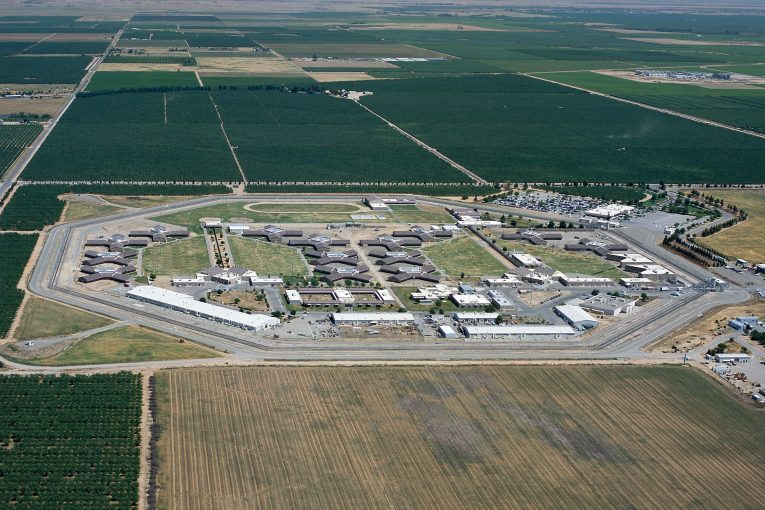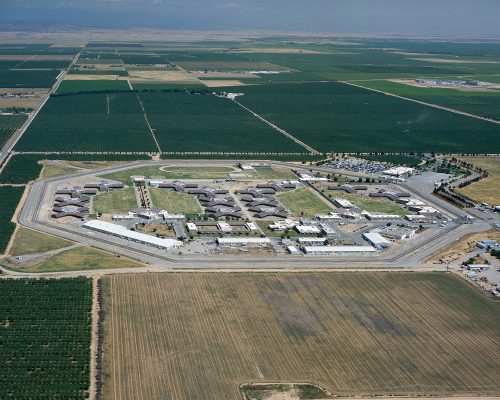

By The Vanguard Staff
CHOWCHILLA, CA – The Central California Women’s Facility here is the scene of “rampant sexual violence” against women prisoners that should draw outrage, but “no one seems to care,” charged an attorney this week in an account in the Sacramento Bee.
“If the reports emerging from the Central California Women’s Facility (CCWF) about rampant sexual violence and abuses of power were being reported from anywhere else, there would be outrage across the state. But because these survivors are locked inside California’s largest women’s prison, no one seems to care. The silence is deafening,” said Lilli Paratore, managing attorney at Uncommon Law, representing clients in the discretionary parole process.
Paratore, who has worked with people in prison for nearly a decade at the Death Penalty Clinic, the East Bay Community Law Center’s Clean Slate Practice, the Prison Law Office and the Orleans Public Defenders, added that “these unacceptable conditions have not changed in the near decade I have been working with criminalized survivors preparing for their parole hearings. This must change.”
The attorney argues in the Sacramento Bee that the prison’s failure to “protect people in women’s prisons from abuse by prison staff is well-known and documented,” and stressed she has “witnessed how this abuse impacts my clients on a daily basis.”
Paratore said she normally doesn’t deal with the issues because her work is with parole, but maintains it’s “different now” because former Correctional Officer Greg Rodriguez, who has been accused of raping 20 women at CCWF, was located in an area where people are “interviewed by psychologists in preparation for hearings, where attorneys meet with clients and where a lucky few are granted their release.”
The attorney explains the freedom of those sentenced to life in prison depends on meeting with the Board of Parole, which determines if “someone poses a risk to public safety by asking questions about every harm they have experienced or inflicted. This process is arduous and emotionally devastating, and few succeed.”
Paratore wrote in the Bee “only 14 percent of the more than 9,000 parole hearings scheduled in California 2022 resulted in a parole grant.”
“For survivors of sexual abuse whose past violence is directly related to their victimization, the board’s questions become even more invasive: Why didn’t you leave? Why didn’t you stop the abuse? Why didn’t you get a divorce? Traumatic experiences are twisted, leaving many to wish that they had never shared them,” adds Paratore.
The attorney said that “93 percent of incarcerated women in the U.S. experienced trauma or violence prior to their incarceration. In California, a 2014 study found nearly 100 percent of women incarcerated for the homicide of an intimate partner were abused by the person they killed. Most indicated that the homicide resulted from an attempt to protect themselves or their children.”
Paratore argues clients face “the dehumanizing gauntlet of the parole board” and now must “weather the indignity of attempting to secure their liberty in a place where someone wielding a badge of authority is accused of raping dozens of their peers.”
The attorney said in the Bee her clients are now “more frightened to participate in the parole process than ever before; frightened not only of what parole commissioners may force them to relive, but also of doing so in an environment where the brutality of our prison system is on fresh display.”
“The very institutions tasked with maintaining public safety have failed to protect my clients at every turn, both before and during their incarceration,” Paratore adds.
“The parole board — which requires my clients to acknowledge the harm they have caused, show remorse and make amends — has been silent in the face of these (rape by officers) allegations,” Paratore charges.
“Every survivor of sexual violence deserves to be believed and to have access to healing. This will only happen when our prisons and those who run them are finally held accountable for perpetrating harm and degrading real community safety. My clients deserve no less,” Paratore wrote in the Bee.